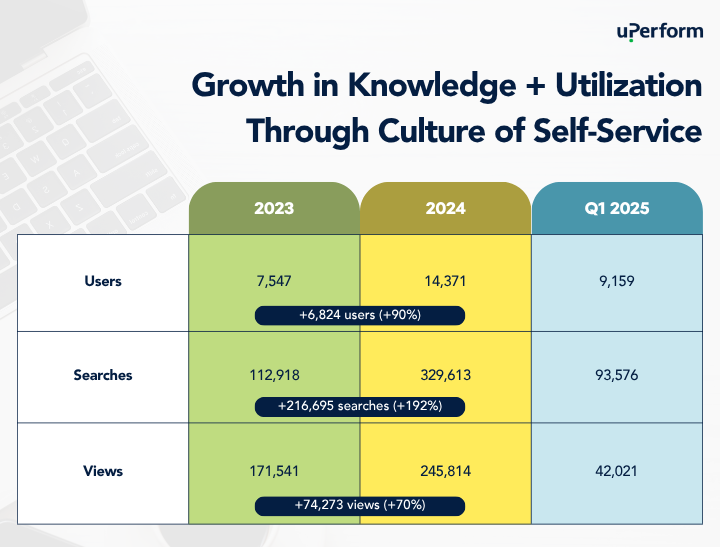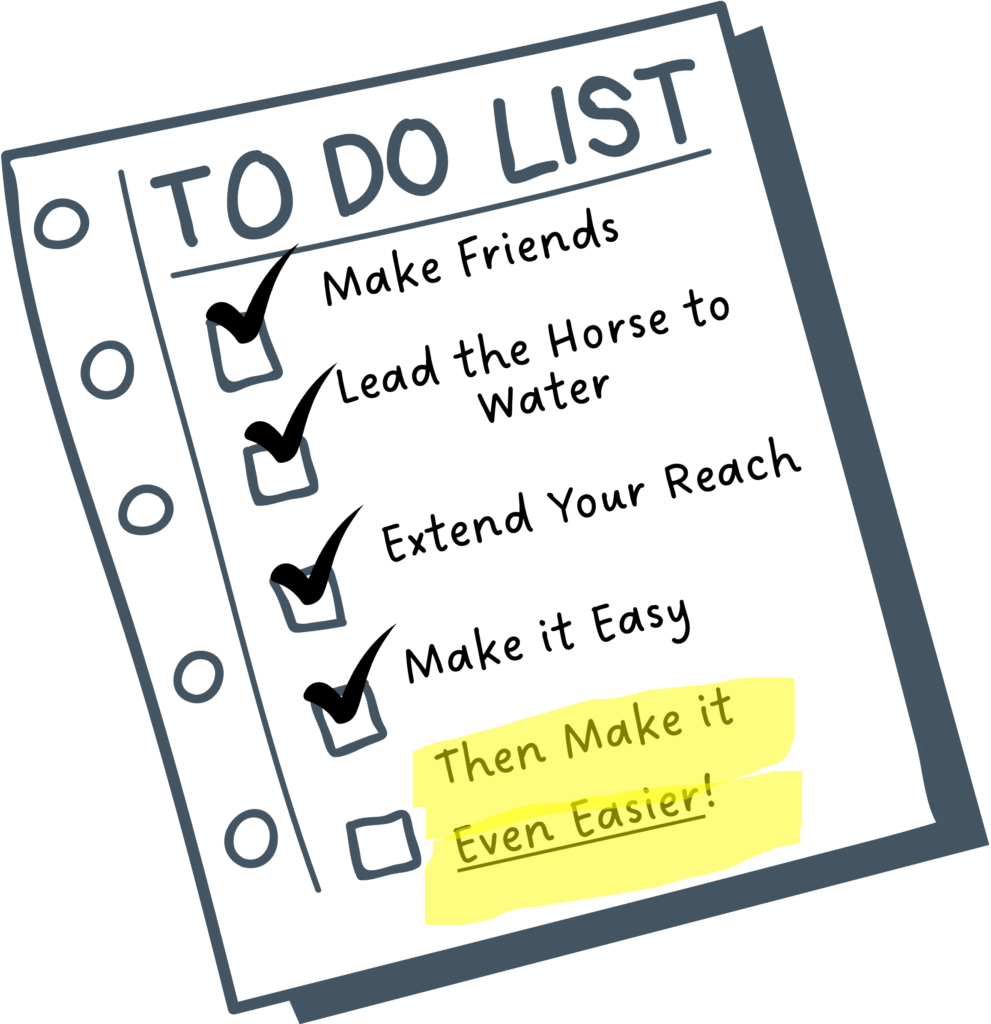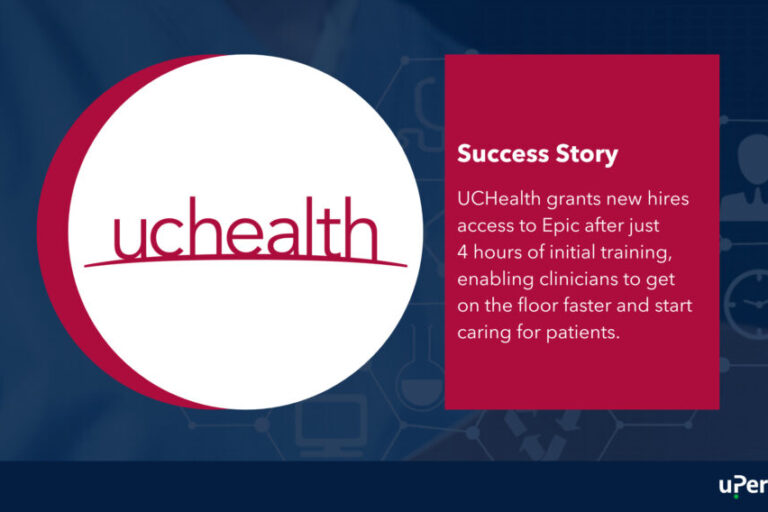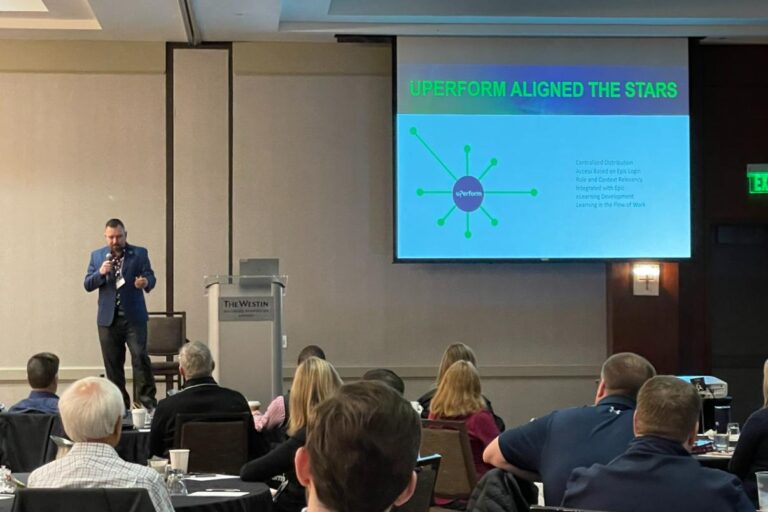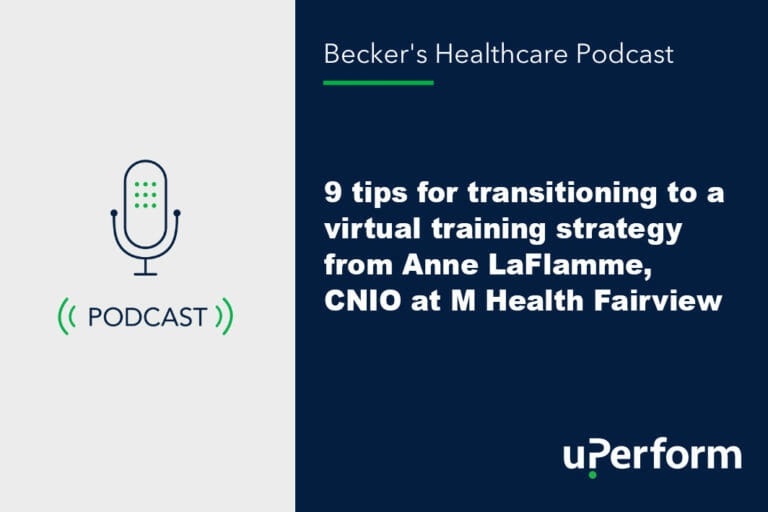As technology introduces more frequent changes in healthcare and health systems face fiscal uncertainty, the ability to effectively scale training is more important than ever. At the recent AMIA Clinical Informatics Conference in Anaheim, CA, Community Health Network (CHNw) presented its innovative approach to health IT software education, emphasizing the benefits of self-service learning.
In 2021, CHNw partnered with uPerform to transition to an asynchronous, self-service learning model. In 2023, the organization optimized its training strategy with a focus on improving long term adoption of technology. In 2024, the organization achieved Epic Gold Stars Level 10 status.
Their presentation, “The Culture of Self-Service: Empowering Clinicians to Navigate Technology Confidently at Community Health Network,” underscores the organization’s commitment to enhancing clinician engagement and efficiency through strategic training initiatives and its partnership with uPerform.
If you build it, they will come…right?
If there’s one thing clinical informaticists and training teams know, it’s that IT adoption isn’t Field of Dreams. Prior to its shift towards asynchronous training, CHNw experienced the same IT challenges so many health systems experience. Training and help resources were scattered. Training was instructor-led and any self-service help that did exist was too reliant on tip sheets. The result was poor engagement with training resources and low adoption of new IT solutions.
Fostering a culture of self-service
Knowing it needed a change, CHNw pioneered a shift toward self-service learning. The strategy has enabled them to scale to meet growing demands without requiring an increase in the education team’s size.
Now, CHNw leverages uPerform as a centralized hub, branded as Knowledge+, to create a single source of truth for end users. But unlike Field of Dreams, simply creating the Knowledge+ library wasn’t enough to drive meaningful change.
CHNw is intentional about directing users to its Knowledge+ Library. If end users contact the help desk for support, the help desk responds with a relevant link to a piece of content in Knowledge+, rather than simply sending an attachment. Newsletters and QR codes link to the Knowledge+ Library. CHNw also leverages uPerform’s Epic integration capabilities to deliver content throughout Epic – in its main menu toolbar, F1 dashboard integrations and deep links in navigators and print groups.
The new strategy has been effective in delivering quality training for clinicians while reducing the time burden training had on both end users and staff.
CASE STUDY: Nursing student onboarding
In 2023, CHNw delivered instructor-led training for 1,292 inpatient nursing students across 113 scheduled sessions. Each training was approximately four hours, plus additional time for coordinating and scheduling with various schools.
In 2024, CHNw transitioned these students to self-paced eLearning. The results were astounding. CHNw was able to:
- Save 600+ hours for its training team ($23,165)
- Reduce caregiver time spent in training by more than 50%
- Maintain high student satisfaction with the quality of training
CASE STUDY: Onboarding incoming physicians & APPs
CHNw has identified that half of the physicians and APPs starting within their network already have significant Epic experience. As a result, much of their initial onboarding and training was simply review.
In 2024, CHNw began a dual track training program for physicians and APPs. Anyone with six or more months of Epic experience in their role would be enrolled in self-paced eLearning. Anyone with less than six months experience or prefers to learn with a trainer would be enrolled in instructor-led training.
By transitioning to this new model, CHNw:
- Decreased training duration by 50% for Epic-experienced providers
- Increased learner satisfaction with training experience
- Limited instructor-led training to those new to Epic, continuing to give more time back to the training and informatics teams.
A model for continued success
While CHNw is certainly proud of the strides it has made in new hire onboarding, its primary focus is on fostering long-term adoption of IT tools and leveraging that technology to its fullest potential. So far, the data suggests they are excelling.
One of CHNw’s standout achievements is its impressive 90% user adoption rate of educational materials. Between 2023 and 2024, CHN increased the number of users accessing the Knowledge+ library by 90%, searches by 192% and content views by 70%. Among uPerform clients, they are first in search volume, first in direct content views for mid-size healthcare clients, and second in Epic in-app help usage for mid-size healthcare clients.
This, of course, is in addition to the success they’ve had climbing the Epic Gold Stars ranks, achieving level 10 status in 2024. In 2024, they also achieved a 6.1 utilization score (out of 10). They have a goal of reaching 6.5 utilization in 2025, which would place them in the top 5% of all Epic systems.
Beyond the metrics, CHNw continues to receive stellar feedback from its analysts and clinicians.
“As an Ambulatory Applications Analyst, I frequently refer to Knowledge+ articles when on the support ticket queue. I have found Knowledge+ to be very handy in both answering Epic questions from end users and helping me understand clinical workflows. I really appreciate that there is a single repository with tip sheets, demos and simulations that is easy to search and use.” — Adam Frank, Applications Analyst, IT Business Solutions
Recommended best practices for building a self-service strategy
Like any software tool, uPerform is only as good as the processes put in place to support it. CHNw has adopted a “foundational model for continuous improvement” as a core component of their training strategy.
Leveraging what they call a “triad strategy” that fosters collaboration between the training team, informatics team and site support team, they have continued to refine their learning strategy to meet the needs of their users. Based on their experience and success, they’ve put together recommended best practices for organizations looking to implement a similar learning model.
1. Make friends
Building a self-service training model requires organizational change. And with any organizational change, CHNw recommends identifying stakeholders that have something
to gain by partnering with you. Sharing key benefits can help rally support and earn allies. These benefits might include:
- Single source of truth for learning and support
- Increased caregiver and patient experience
- Workflow standardization
- Driving adoption & utilization
2. Lead the horse to water
Again, this isn’t Field of Dreams. Organizational change requires consistent promotion and hand holding. To change caregiver behaviors and break habits, you will need to patiently and persistently guide them to your new source for learning and support.
3. Extend your reach
As you identify key stakeholders and build relationships across your organization, consider how you can expand your reach to other IT systems. Clinicians and hospital staff are continuously expanding their use of technology beyond the EHR. Extending your reach presents opportunities to provide more value to your organization and better support clinicians.
4. Make it easy
This is one of the primary reasons for making the switch to a self-service learning model. It’s about making information more accessible and easier for clinicians to find quickly. If content isn’t easy to find, clinicians are unlikely to engage with it. CHNw leverages uPerform’s multiple integration points within Epic to ensure support is always a click away.
5. Then make it easier
Consistent with their “foundational model for continuous improvement,” CHNw continues to examine ways to further improve their training model. The organization is looking forward to implementing uPerform’s Direct Answer and Copilot features in the coming months.
Copilot is uPerform’s in-application assistant in Epic, providing targeted communications and relevant resources to clinicians based on their unique needs. Direct Answer improves uPerform’s search capabilities by providing an AI-generated summary of answers to how-to questions, often eliminating the need for users to open help content, such as a tip sheet.
Watch the full AMIA presentation
Related Articles
Take the first step in empowering your clinicians
Looking for a way to scale your training and empower your clinicians with the skills they need to complete everyday tasks? Contact us today to learn more how uPerform can help you meet growing demands, reduce time in training, improve clinician satisfaction and drive proficiency with your software investments.

